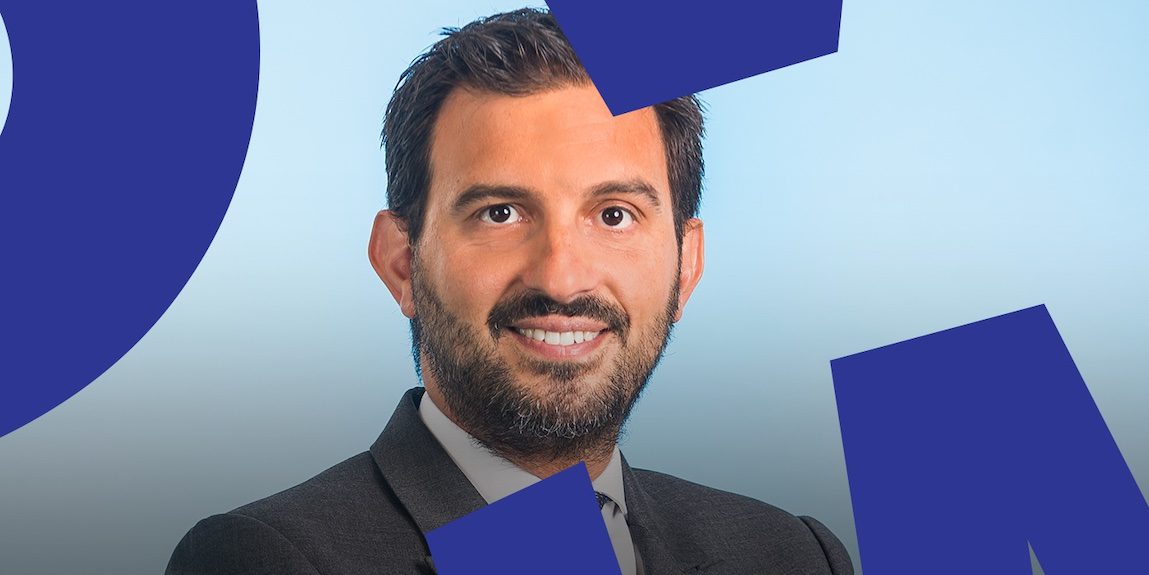

Read what Riccardo Viaggi had to say on the role of inclusivity in construction’s future.
There are a number of reasons why Riccardo Viaggi, the general secretary for the Committee of European Construction and Equipment has a problem with the EU Data Act that has been in play since it was first unveiled as prospective legislation in February 2022.
But, before he begins, he’s keen to fix one common misconception — namely the notion that he might be anti-data sharing.
“At CECE and for myself personally, we share the same belief as Trackunit that data sharing is certainly economically and industrially extremely important in creating the conditions that allow for improved workflow and efficiencies,” he says. “It should help lower the negative environmental impact of machines, project costs and the cost of running machines as just some examples.”
As that’s one of the avowed aims of the EU Data Act with a promise to free up something in the order of €270 billion in revenue through the EU economy by 2028, it’s tempting then to assume he’d be in favor but that would be missing the mark. In fact, missing the mark is exactly what the EU is in danger of doing with the act, he says.
“The devil is in the detail and the fact of the matter is that the EU is missing the point,” says one of the EU’s most prominent champions on all OEM issues. “The industry has already been making progress in this area and is continuing to develop in this area.”
It’s clear then that Viaggi thinks the industry should be allowed to organically press on with its own data sharing efforts at its own pace and via a gradual process underpinned by the economic sense in data sharing where the bottom line automatically dictates the dynamic.
“The devil is in the detail and the fact of the matter is that the EU is missing the point”
Instead, it’s faced with a scenario where, he says, the EU is pushing through the act at breakneck speed as part of an ideological commitment to bringing about changes.
“The European Parliament is really taking a very speedy approach with this,” he says. “There are many parliamentary committees on this going in all different directions with thousands of amendments being tabled and yet they stick to this very ambitious timeline of positioning the whole process for the Spring of next year.”
Viaggi’s point is clear. In the rush to get it through, he feels the parliament could end up with an imperfect piece of legislation that might do more harm than good.

“There is a world of difference between B2B and B2C relationships. What is the point of data sharing in the exact same way between businesses as there is between a business and a consumer?” he asks. “Data sharing between a business and a consumer has to by default be free. We can’t accept that in B2B transactions because there are existing contracts in place and these should be respected.”
Viaggi adds that third parties could then access the data generated by the original data owners, in this case the OEMs, without any recognition or due compensation for the investment costs, time and effort of the data owner to develop that data and make it of use.
“Data sharing is completely useless if you are not able to analyze it,” he elaborates. “It’s the added value and one of the ways we are exploring and advocating on is the difference between the raw data and the processed data.
“There is a huge value in analyzing the data and taking decisions on the basis of that data,” he says. “If you take away all the incentive from generating that data and how it helps us better use our machines and tools, then you’ve changed the game.
“Sharing in of itself profits nobody. It only profits those that can analyze the data.”
A fairer arrangement would require third parties that might be potential competitors to the original data owners to pay for the data and, crucially says Viaggi, be restricted in how much of the data they can access.
“If you take away all the incentive from generating that data and how it helps us better use our machines and tools, then you’ve changed the game”
Viaggi also rejects the notion that B2B contracts contain illegal or burdensome clauses that weigh in the favor of the OEMs, but is hopeful that the European Council can act as a brake on the parliament’s more aggressive stance.
“The European Council is taking a more cautious approach and is countering the position of the parliament,” he says. “But all that said, I still expect the act to pass and come into force before the end of 2024, especially as presidency will soon pass to a highly technologically developed country in Sweden which is keen also to push all aspects of a digital economy including data sharing.
“What I can’t predict is in what form it will emerge but I hope it will be in a very different form to what is proposed now,” he adds. “There is so much positioning currently ongoing and I can’t honestly say how it will turn out.”
Read more about implications of the EU Data Act.
The Interview is part of an ongoing series where we sit down with industry leaders and discuss the topics that matter in construction.
Never miss an insight. We’ll email you when new articles are published on this topic.

